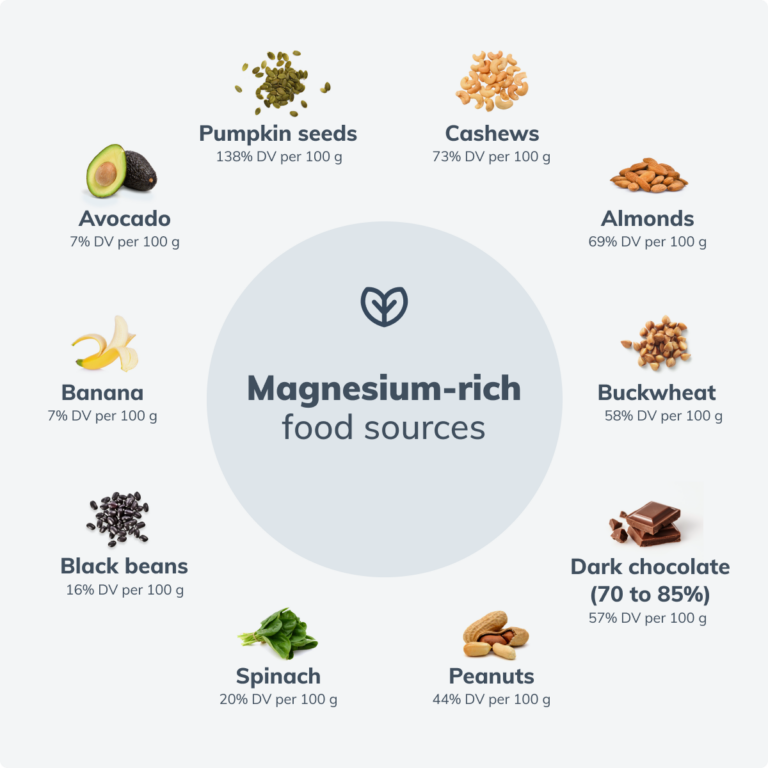
Magnesium is an essential mineral that plays a crucial role in numerous physiological functions within the human body.
- Supports overall health: Magnesium is involved in more than 300 biochemical reactions in the body, contributing to various essential functions such as energy production, protein synthesis, DNA synthesis, and nerve function.
- Bone health: Magnesium works in conjunction with other minerals like calcium and vitamin D to maintain healthy bone density and strength. It aids in the absorption and metabolism of calcium, promoting bone formation and reducing the risk of osteoporosis.
- Heart health: Adequate magnesium levels are associated with a lower risk of cardiovascular disease. Magnesium helps maintain normal heart rhythm, regulates blood pressure, supports blood vessel health, and contributes to the overall functioning of the cardiovascular system.
- Muscle function: Magnesium plays a vital role in muscle contraction and relaxation. It helps prevent muscle cramps and spasms, enhances muscle recovery after exercise, and supports overall muscle performance.
- Energy production: Magnesium is involved in the production of adenosine triphosphate (ATP), which is the primary source of energy in the body. It helps convert food into usable energy and plays a crucial role in metabolic processes.
- Mood regulation: Magnesium is involved in the production and regulation of neurotransmitters that influence mood and mental well-being. Adequate magnesium levels have been linked to a reduced risk of depression, anxiety, and stress.
- Sleep quality: Magnesium promotes relaxation and can help improve sleep quality. It plays a role in the regulation of melatonin, a hormone that controls the sleep-wake cycle, and may help alleviate insomnia or sleep disorders.
- Blood sugar regulation: Magnesium is involved in insulin secretion and glucose metabolism. It helps maintain healthy blood sugar levels and can contribute to the prevention and management of type 2 diabetes.
- Migraine prevention: Some research suggests that magnesium supplementation may help reduce the frequency and intensity of migraines. It may act by relaxing blood vessels and reducing inflammation in the brain.

Leave a Reply